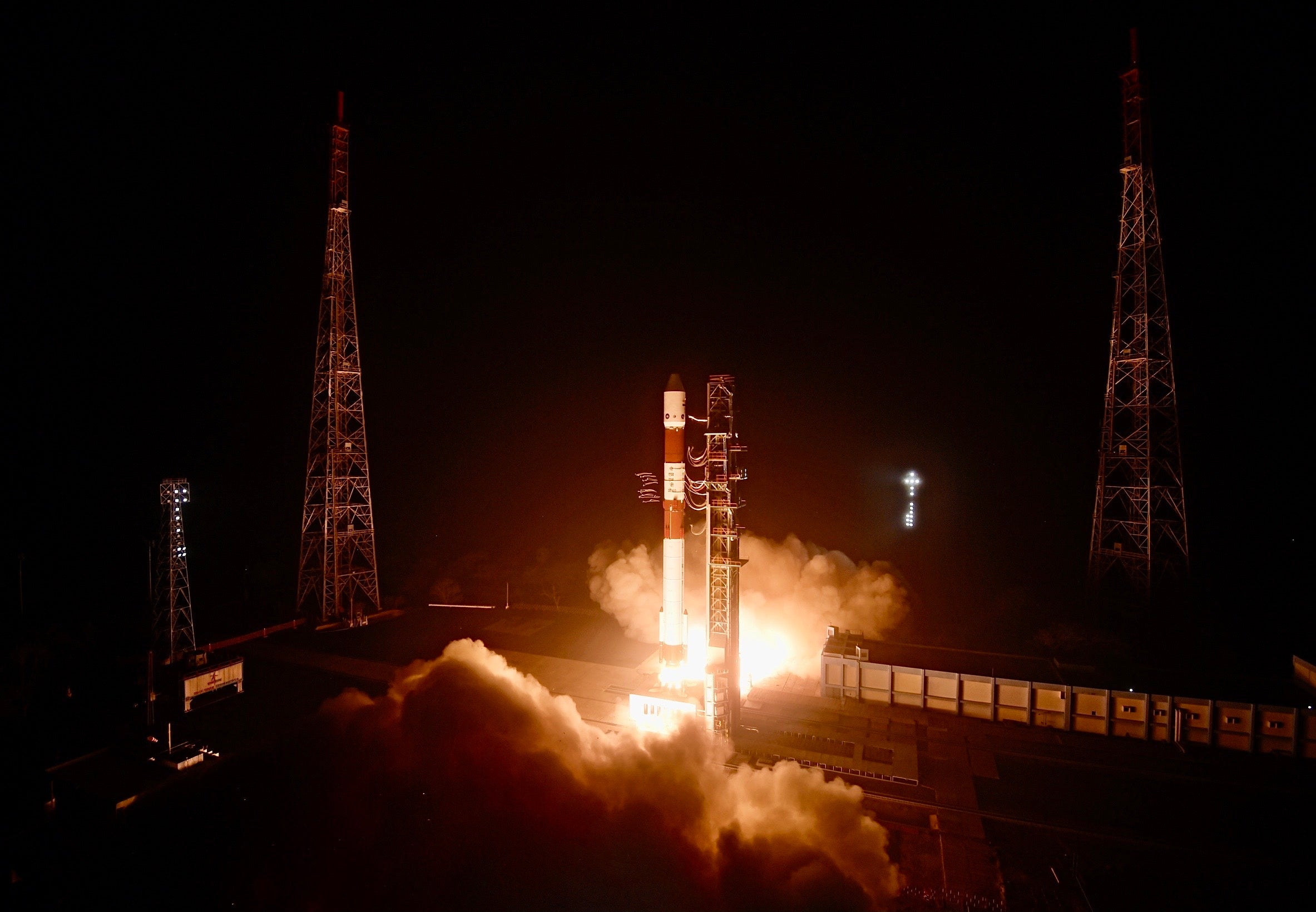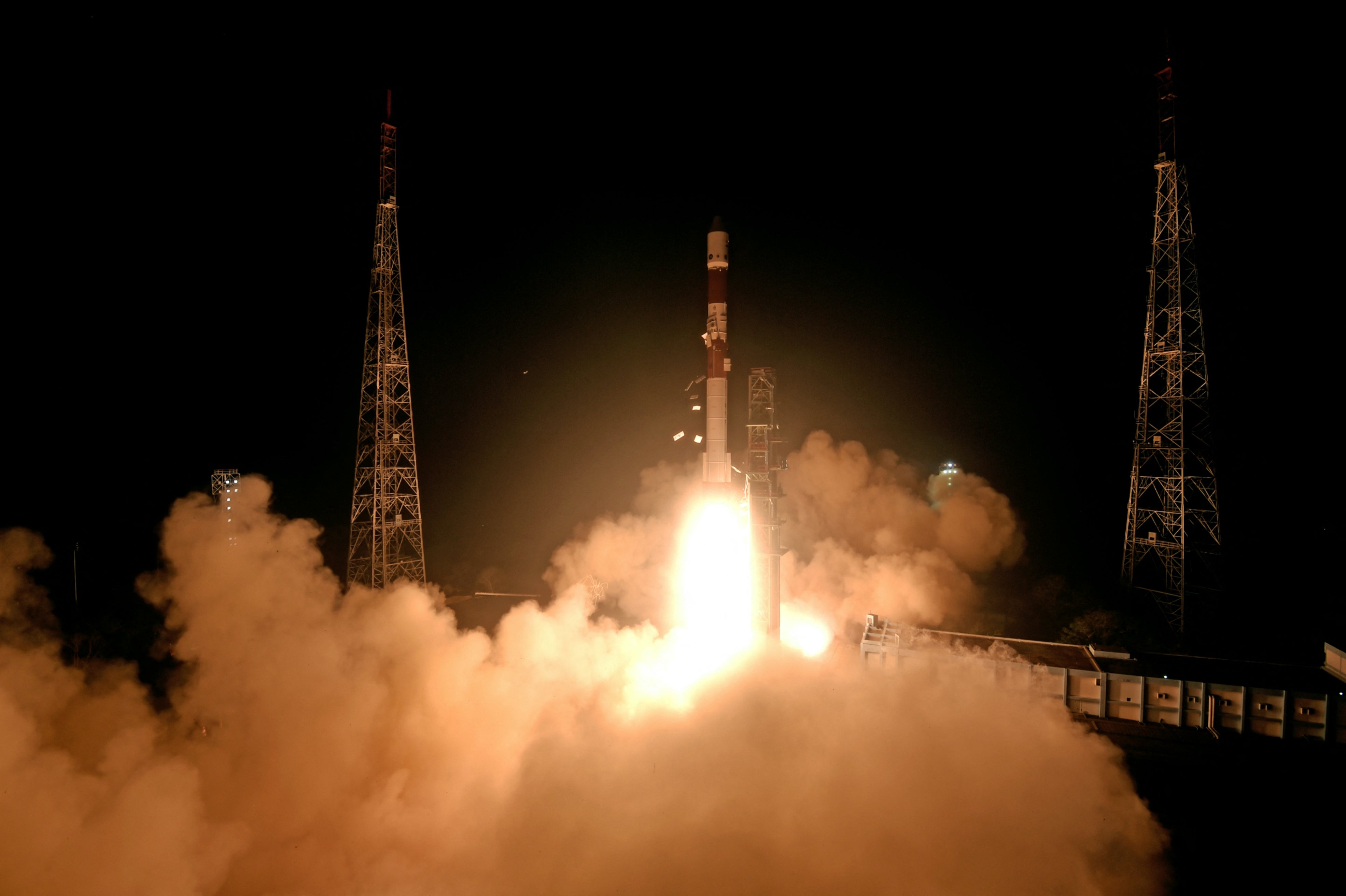India becomes only fourth country ever to achieve key space landmark
Two small satellites successfully ‘docked’ – latching onto each other while in orbit
Your support helps us to tell the story
From reproductive rights to climate change to Big Tech, The Independent is on the ground when the story is developing. Whether it's investigating the financials of Elon Musk's pro-Trump PAC or producing our latest documentary, 'The A Word', which shines a light on the American women fighting for reproductive rights, we know how important it is to parse out the facts from the messaging.
At such a critical moment in US history, we need reporters on the ground. Your donation allows us to keep sending journalists to speak to both sides of the story.
The Independent is trusted by Americans across the entire political spectrum. And unlike many other quality news outlets, we choose not to lock Americans out of our reporting and analysis with paywalls. We believe quality journalism should be available to everyone, paid for by those who can afford it.
Your support makes all the difference.India has become only the fourth nation in the world to successfully conduct space “docking”, joining two small craft in orbit following a series of complex manouevres.
India’s national space agency Isro carried out the highly anticipated Space Docking Experiment (SpaDeX) at around 9am (local time) on Thursday, a statement said.
Two small satellites operated by Isro (the Indian Space Research Organisation) – Target and Chaser – successfully latched onto each other and remain docked, it said.
The development of docking technology, crucial for satellite servicing, space station operations and interplanetary missions, boosts India’s credential as one of only a handful of countries playing a significant role in the commercial and exploratory frontiers of space.

"Docking initiated with precision, leading to successful spacecraft capture. Retraction completed smoothly, followed by rigidisation for stability. Docking successfully completed," the space agency said in a post on X.
It said that after docking the two satellites could be successfully controlled as a single object. Undocking and power transfer checks will be carried out in the coming days.
India is only the fourth country to achieve successful docking after Russia, the US and China. In 2023 India also became the fourth nation to land an unmanned craft on the Moon.
Prime minister Narendra Modi congratulated scientists at Isro on the successful demonstration of space docking of satellites. "It is a significant stepping stone for India’s ambitious space missions in the years to come," Mr Modi said in a statement.

The SpaDeX mission was launched on 30 December 2024 from India’s main spaceport in Sriharikota in Andhra Pradesh state, after being postponed twice.
The launch was pushed back at first because the docking process needed further validation through ground simulations, and later because of an issue arising from excess drift between the satellites.
The launch in December suffered an unusual two-minute delay due to what Isro described as a “traffic jam” in space caused by “conjunctions with other satellites in the same orbit”.
Among various payloads and experiments were eight cowpea seeds Isro had sent to space onboard the rocket to study plant growth in microgravity conditions, which germinated within four days of the launch of the mission, according to reports.
The mission will also demonstrate the transfer of electrical power between docked spacecraft, a capability vital for applications like in-space robotics, composite spacecraft control and payload operations post-undocking. Such technologies are essential for missions requiring multiple rocket launches to achieve shared objectives.
Isro hopes the mission will be a forerunner for autonomous docking needed for India’s Chandrayaan-4 moon sample return mission planned for 2028 as the space agency hopes to expand its share in the rapidly growing $400bn space market.
“India has ambitious missions planned, and to achieve those this is an important technology we have to have,” Indian astrophysicist Jayant Murthy was quoted by Reuters as saying. “Various missions like building a space station need assembly in space, which is not possible without space docking.”

Join our commenting forum
Join thought-provoking conversations, follow other Independent readers and see their replies
Comments